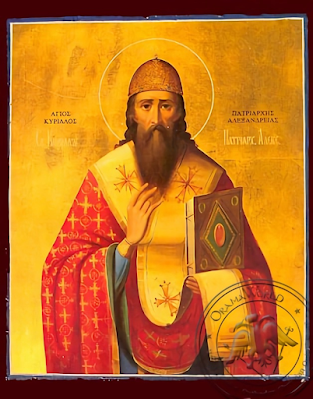To comment please open your gmail account or use my email address, FB Messenger or X (Twitter). This post is likely to attract Protestant rants; they will not be published on this page.
Today America's Catholic Bishops were justly deprived by President Donald Trump of nearly $2.9 billion of federal funding for their leftist Catholic Charities' immigration racket. And whistleblower Kyle Seraphin, the chap who alerted the world to FBI snooping on the Latin Mass, is giving the lead to fellow Catholics by depriving the US Bishops of his tithing.
"Are (the bishops) actually worried about their bottom line?” asked Catholic US vice-president J D Vance. Catholic Charities has ushered millions of illegal aliens into the United States, and advised 638,000 of them on how to evade immigration law. .https://nypost.com/2025/01/27/us-news/catholic-charities-draws-fire-over-video-coaching-illegal-migrants-on-how-to-duck-ice/ The bishops' venal immigration policy is a rotten fruit of Communist infiltration of the Church, typified by the radical Jesuit papal pretender Jorge Bergoglio.
Columbia has buckled under Trump's threats and taken back their exported criminals. NZ's Coalition Government and socialist Catholic bishops need to lift their game and play the ball - separatism and Novus Ordo effeminacy, respectively.
https://www.complicitclergy.com/2025/01/24/bought-and-paid-for-2-9-billion-reasons-bishops-hate-trump-but-loved-biden/
First, Kyle Seraphim on X (Twitter) socking it to his Austin, Texas, Bishop Vasquez.
Hey - My parish is reading your Leftist propaganda "letter" at Mass this Sunday. It decries the unfairness of 's immigration policy.
As of today, I will cease financially contributing to the Parish or the Diocese. I'll find ways to give charity directly to those in need as I did last year.
 |
| Bishop Vasquez - 'mealy-mouthed' |
You need to repent and stop hiding being mealy mouthed, virtue signaled nonsense by saying the Diocese "recognizes a country's right and responsibility to promote public order, safety, and security through well-regulated borders and just regulations on immigrations" while pushing RADICAL Marxist/Liberation Theology tenets in the next sentence.
"At the same time, all people have the moral obligations to refrain from denigrating any group of people, to provide human treatment of the poor or others in need and to deprive no individuals of protection under the law."
The breakers of laws in this country have DIRECTLY and NEGATIVELY impacted the poor of THIS country. I haven't see your cries for the homeless veterans who served America. I don't see you reaching out for those in rural parts of America struggling.
The current US immigration situation directly leads to the rape, abuse, and enslavement of those who are trafficked and smuggled across the border and must result from willful ignorance or actual malevolence.
 |
| Americans murdered by illegal aliens |
I will not be separating myself or my family from the Word or the Eucharist. But you can expect that I will not support this corrupt and lawless advocacy against the principles of national sovereignty and responsible governance. Shame on you, Bishop Vasquez.
Recent revelations about the federal funding awarded to Catholic non-governmental organizations (NGOs) over the past four years have raised significant questions regarding the motivations behind the U.S. Catholic bishops’ public stances on political issues.
An in-depth analysis of federal spending has revealed that the Biden administration granted Catholic NGOs nearly $2.9 billion in immigration-related funding, a figure more than three times higher than the funding awarded under the Trump administration’s first term.
 |
| 22 year-old nursing student Laken Riley fought an illegal alien for 16 minutes before she died |
The U.S. Conference of Catholic Bishops (USCCB) and affiliated Catholic NGOs have long been active participants in resettling immigrants and refugees, advocating for policies aligned with Catholic social teaching. However, the sheer scale of financial support during the Biden administration has sparked concerns about potential conflicts of interest, especially as these same bishops have largely refrained from addressing Biden’s anti-Catholic policies.
Furthermore, despite Canon 915 of Catholic Church law—which states that Catholics “obstinately persisting in manifest grave sin” should not receive Holy Communion—many bishops have continued to welcome Biden to the Eucharist.
The analysis, conducted using data from USAspending.gov, reviewed immigration-related federal funding awarded to Catholic NGOs between 2009 and 2024. Researchers flagged organizations affiliated with the Catholic Church, analyzed the geographical distribution of funds across dioceses, and used data visualization tools like Tableau to present the findings.
The results revealed striking disparities: Catholic NGOs received $2.9 billion in the past four years, compared to $5.2 billion over the previous 16 years combined. More than half of the funding awarded since 2009 occurred under the Biden administration, raising questions about the intersection of financial incentives and ecclesiastical advocacy.
The two largest recipients of these funds were Catholic Charities, which secured $2.6 billion, and the USCCB itself, which received nearly $1.6 billion. Geographically, the Archdiocese of Washington, D.C., led the way with $1.6 billion, followed by the Diocese of Fort Worth with nearly $1 billion.
Federal funding was primarily allocated through three key programs: Refugee and Entrant Assistance State/Replacement Designee Administered Programs (41%), Refugee and Entrant Assistance Voluntary Agency Programs (18%), and the U.S. Refugee Admissions Program (12%).
Critics of this funding suggest it may explain the bishops’ public silence regarding President Biden’s policies and their criticism of former President Trump. Trump’s immigration policies, including reduced refugee admissions and stricter enforcement of immigration laws, jeopardized the federal funding streams that Catholic NGOs heavily rely upon.
Meanwhile, Biden’s more lenient approach to immigration not only aligns with the USCCB’s advocacy but also ensures the continued flow of federal dollars to Catholic organizations.
 |
| Today Trump signed the Laken Riley Act ensuring no more Americans suffer at the hands of illegal alien criminals |
Beyond the financial data, the study highlights the broader context of financial challenges facing the Church. Catholic dioceses have paid over $5 billion to settle sex-abuse scandal lawsuits, with additional millions spent on legal fees. This financial strain may contribute to the Church’s reliance on federal funding to sustain its operations and social programs, including those related to immigration.
The findings also spotlight inconsistencies in leadership messaging. For instance, Pope Francis has criticized strict immigration policies, such as Trump’s deportation plans, while simultaneously implementing measures to limit illegal entrants into Vatican City.
This financial and political entanglement raises critical questions about the motivations behind the bishops’ policy positions and public statements. While Catholic NGOs provide essential services to vulnerable populations, the Church’s reliance on government funding risks creating the appearance of compromised integrity.
As the faithful consider these findings, it is essential to prioritize transparency, accountability, and adherence to core Catholic principles to navigate the challenges of serving both God and neighbor.

















